Members of the Wisconsin Elections Commission claim that voter fraud is overstated, especially after presidential candidate Donald Trump speculated the system may be rigged.
Mark Thomsen, chairman of the Wisconsin Elections Commission and Marquette alumnus, and Don Millis, Commissioner of the Wisconsin Elections Commission, discussed the role of voter fraud in the upcoming election at the Marquette Law School Oct. 26. The event was moderated by law school fellow Mike Gousha.
Voter fraud is defined as any attempt to illegally sabotage the election to affect its outcome. However, its impact on current elections is overstated, Mills said.
“The commission, as should everyone, has an interest in promoting the legitimacy of elections,” Millis said. “I see no evidence of widespread voter fraud that’s ever affected an election.”
Philip Rocco, a professor of political science, said studies back up Mills’ claim that voter fraud isn’t widespread.
“The gold standard study has basically found that among about one billion ballots cast between 2000 and 2014, only about 31 credible allegations of fraud exist,” Rocco said.
However, there are complications in detecting fraud in American elections, Rocco said.
“We don’t really have a centralized data source for reporting fraud,” Rocco said. “Elections are run by states, and when it comes to actually monitoring election fraud, there is a lot of variation in how states do that.”
Despite the commission’s assurance that voter fraud is a non-issue, Donald Trump has been vocal in his belief that the election is rigged or will be rigged. Millis said this rhetoric can affect voters’ viewpoint of the commission.
“It doesn’t help us when one of the candidates is going out of his way and saying it’s rigged,” Millis said. “To me, it’s a fallback if he loses. We have all sorts of rules about conduct during the election, not just so the election is fair.We also want people to perceive the election as fair.”
Rocco said Trump’s concerns about counting votes aren’t completely unprecedented. “In the 2000 election between George Bush and Al Gore, there was a recount in Florida because of irregularities in some ballots,” Rocco said.
However, rigging such a large-scale election is impractical, the chairman said.
“We have 1,854 municipal clerks and 72 county clerks,” Thomsen said. “To say that the election was rigged in Wisconsin, you would have to orchestrate a huge conspiracy of all those people.”
One area of voter fraud that the committee has researched is the number of felons voting, as they lose their vote until the completion of their sentence.
“The number of felons voting was so insignificant that we didn’t know if we wanted to keep the records anymore,” Thomsen said. “It had virtually no impact on any real election.”
Ensuring that irrational voter fraud rumors don’t become widespread is a bigger issue for the committee than voter fraud itself.
“Going into the election, our concern is if there’s going to be people at the polling places making noise and claiming the election is rigged,” Thomsen said.
Despite the use of computers to count votes, Thomsen said he’s also confident that the election will not be impacted by hacking groups from foreign countries.
“There are individual hard drives for individual systems,” Thomsen said. “You cannot go on the internet and hack the system. You have 1,854 systems and you would have to go hack all those systems […] I can say with confidence someone from Russia cannot just hack a system and rig Wisconsin.”
In response to high profile hacking cases, Gousha asked the committee members if they were hesitant towards implementing more technology into elections.
“Online voting used to be seen as the wave of the future, everyone thought that we were all gonna vote online someday and that would make it easy for everyone,” Gousha said.
However, Millis said he’s concerned about moving towards online voting because of the cost of preventing hacking.
“If you look at the problems major retailers have with hacking, my guess spending more money on security per transaction than the state is able to spend, I’m very concerned,” Millis said. “I’ve never been that excited about online voting. I’ve always had a bias towards having a hard, paper ballot so that you could always check, even if it’s laborious.”
This story was updated Nov. 3, 2016 at 11:15 a.m.

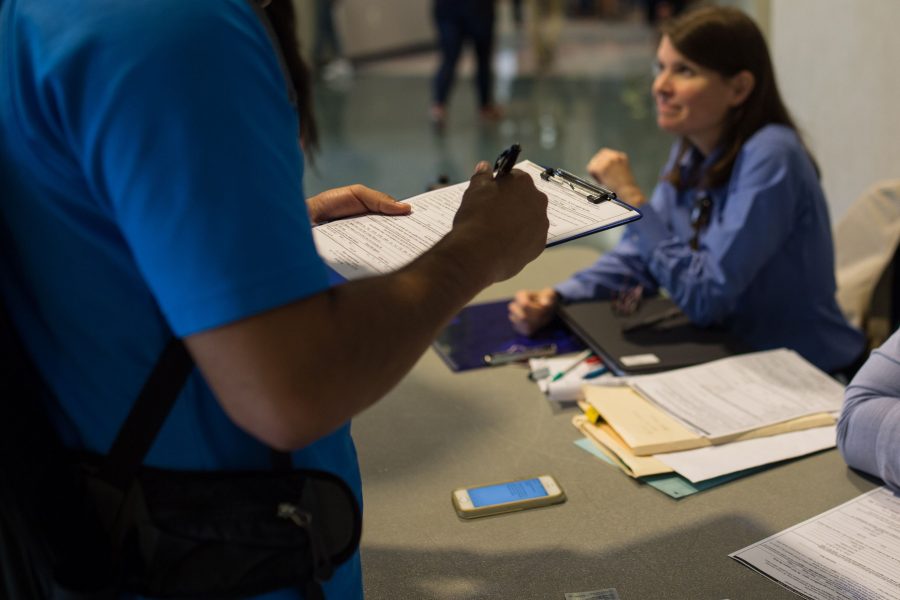
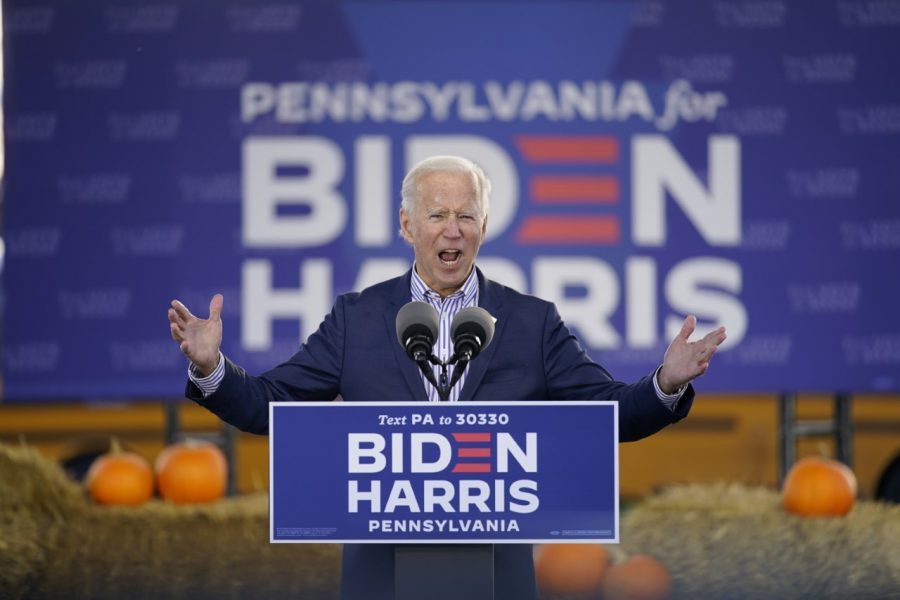
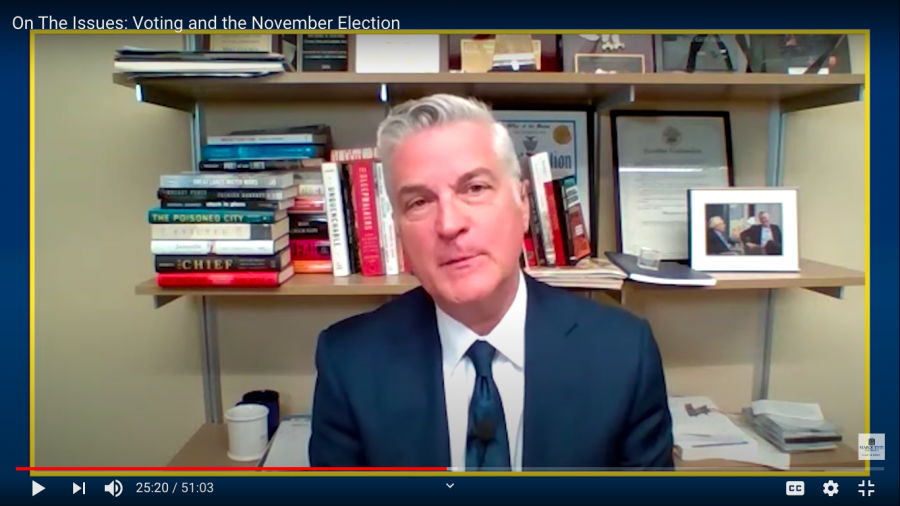
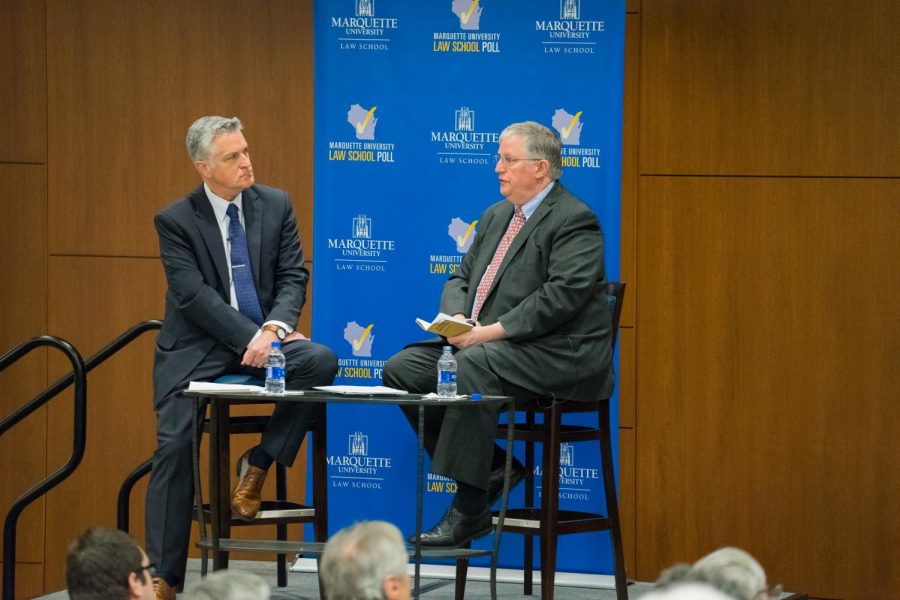
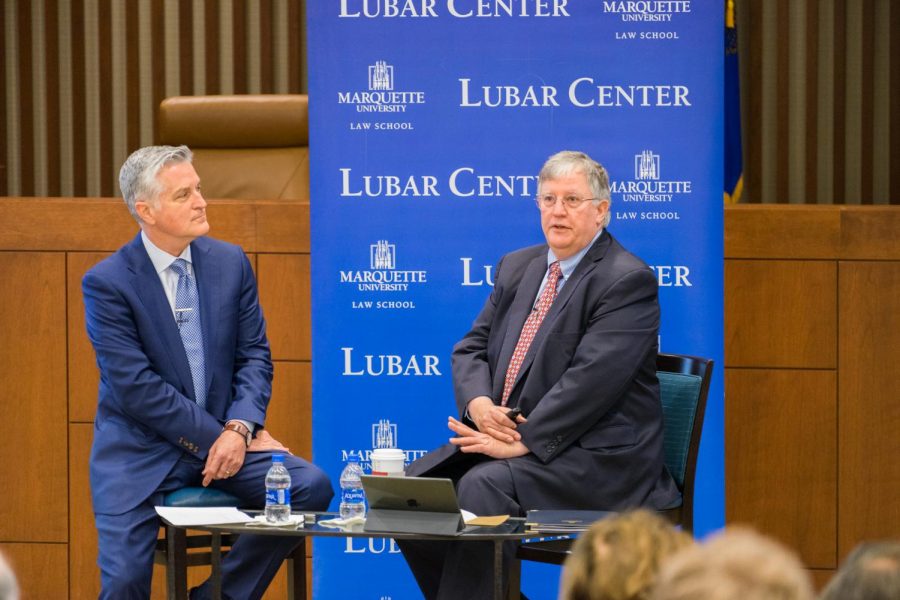
Amy Elliot-Meisel • Nov 3, 2016 at 11:18 am
This has been updated online, thank you for pointing out our error. A correction will run in next week’s Tribune.